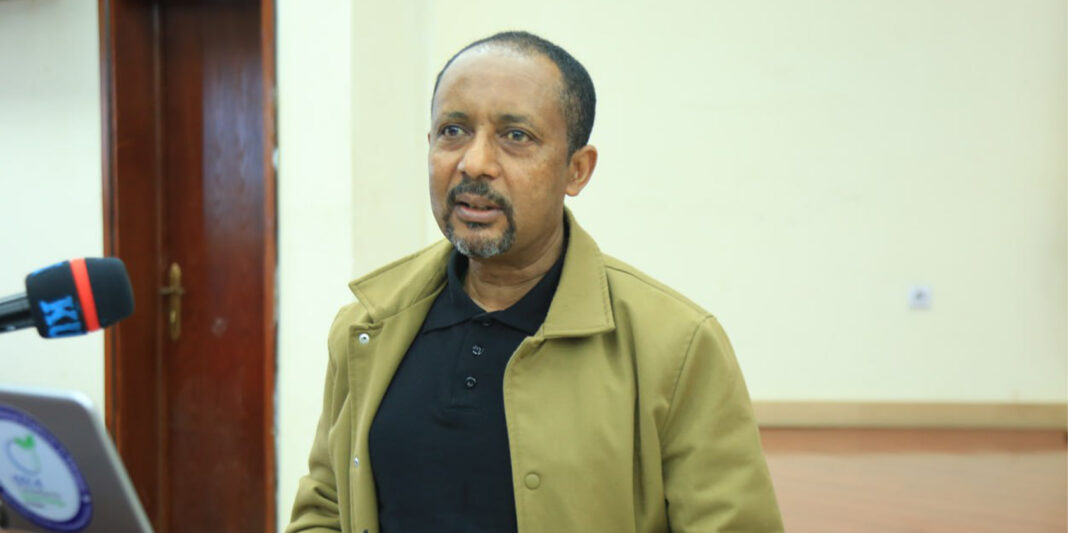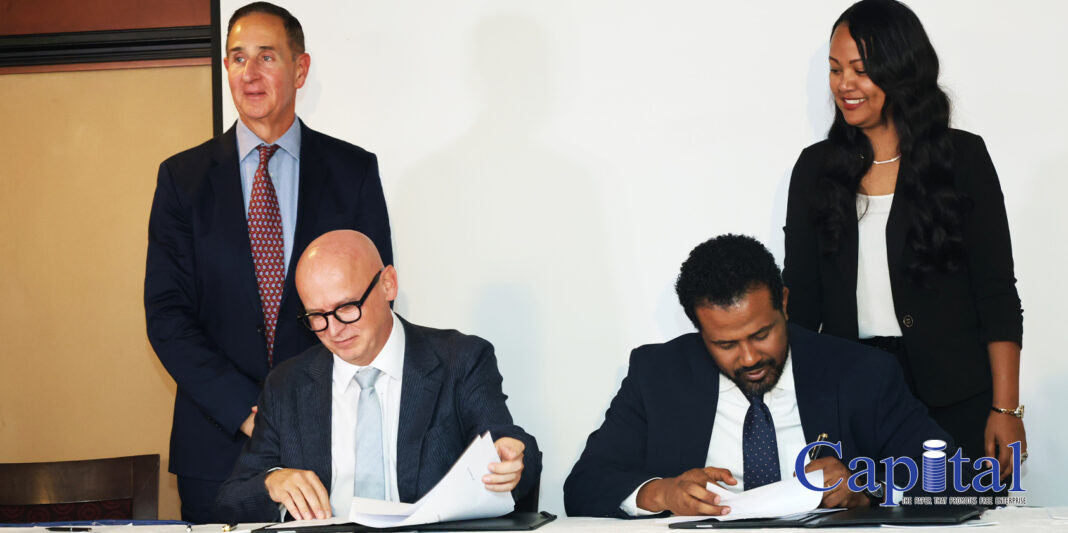Yonas Gebru Gebreegziabher stands at the forefront of climate advocacy in Africa as the Co-founder and Executive Director of the Consortium for Climate Change-Ethiopia (CCC-E) and Vice Chairperson of the Pan African Climate Justice Alliance (PACJA). Recently appointed Chair of the Non-State Actors and Inclusivity Committee for the Second Edition of the Africa Climate Summit (ACS2), held in Addis Ababa in September 2025, Yonas brings deep expertise as an ecologist and passionate commitment to climate justice.
The ACS2 summit marked a landmark moment for Africa’s climate diplomacy, uniting diverse stakeholders—from heads of state and policymakers to youth leaders and the private sector—to chart an ambitious path toward sustainable development, climate adaptation, and justice across the continent. In this interview, Yonas reflects on Ethiopia’s pivotal role as host, the groundbreaking partnerships and funding initiatives launched, and the critical challenges in transforming summit commitments into impactful action on the ground. He also highlights the vital inclusion of women, youth, and local communities in shaping Africa’s climate future and stresses the importance of collective and sustained effort for the continent’s resilience and innovation. Excerpts;
Capital: How would you describe the overall success and significance of the Second African Climate Summit (ACS2) for Ethiopia and the continent?
Yonas Gebru: The Second African Climate Summit, which took place in September 25 in Addis Ababa, was a resounding success both for Ethiopia and the continent. The summit was concluded with fruitful discussions and clear outcomes aligned with the initial goals.
This summit was the second of its kind; the first was held in Nairobi, Kenya, in 2023. Ethiopia’s preparations drew upon the lessons learned from that inaugural summit, which helped frame the overall approach. Generally, ACS2 stands out as one of the most successful summits for both Africa and Ethiopia, marking a significant milestone in the continental climate negotiation discourse.
Capital: The central theme of ACS2 is to position Africa as the “source of global climate solutions,” rather than a “victim.” How can Ethiopian organizations use this new narrative to attract investment and create partnerships?
Yonas: The primary objective of the summit was to unify African voices and showcase African-led climate solutions. Africa, despite being the continent most vulnerable to climate change, contributes minimally to global warming. This summit aimed to shift the narrative, presenting Africa not just as a victim of climate impacts but as a source of innovative, local solutions. Ethiopia, as the host country, demonstrated this potential effectively and brilliantly.
The world has seen that Africans can offer viable climate solutions that contribute to global efforts. These challenges the prevailing narrative that portrays developing countries, including those in Africa, solely as victims in climate governance. While it is true that we are vulnerable, we also possess vast untapped potential to contribute positively. The summit illustrated that Africa is part of the solution, as evidenced by the establishment of new partnerships and discussions on renewable energy investments.
Several initiatives were launched through some multilateral development banks, reinforcing that Africa is not just a victim but an active contributor to global climate solutions.
Capital: One key outcome is the pledge to raise billions of dollars a year through the African Climate Innovation Compact.
Yonas: The global climate finance landscape is complex and has been a challenging aspect of climate negotiations, particularly during the annual UNFCCC Conference of the Parties. Numerous initiatives have been introduced, yet the African Climate Innovation Compact emerged from extensive consultations with diverse stakeholders. This collaborative effort aims to secure significant funding to support climate innovation across the continent.
This pledge under the pact is of paramount importance because effectively managing and funding it will have significant implications not only for Ethiopia but for the entire continent. Being an African-led initiative, I am hopeful that it will be implemented, unlike other continental pledges that have gone unfulfilled.
I firmly believe this pledge will be realized, and the African Climate Innovation Compact will be put into action. If executed as intended, it will enable investments in numerous locally-led projects, some of which were launched during this period.
This suggests a strong likelihood that the funding will reach the communities most in need, where the impact of climate change is felt most acutely. With leadership coming from within Africa, we are not relying on the Global North for this funding, which gives me optimism about its successful implementation.
Leaders have emphasized that adaptation finance should be provided as grants rather than loans. This is crucial for a country like Ethiopia. Adaptation is a priority in the context of climate change impacts, as local communities must adapt to survive. While mitigation is also important, adaptation is particularly urgent for Ethiopia, where communities affected by climate change need to build their resilience.
In Ethiopia, agriculture is the most critical sector for adaptation, as it serves as the backbone of our economy, with approximately 80% of the population dependent on rain-fed agriculture. Due to climate impacts, we have experienced droughts and irregular rainfall patterns. Adapting to these changes is essential for the agriculture sector, and adaptation is equally important for the energy and transport sectors, as well as for enhancing community resilience.
There is no doubt that adaptation is a priority for all African nations. Ethiopia’s nationally determined contributions clearly prioritize adaptation finance, which requires substantial resources. This funding must be mobilized both domestically and from the Global North, which has historically contributed to climate change and bears a responsibility to support developing countries in addressing the consequences of their actions.
They should be held accountable for the problems they have caused. Unfortunately, much of the financial assistance has come in the form of loans, contributing to the debt burdens of African and other developing countries. This cycle must end. Any adaptation finance directed to the continent, and specifically to Ethiopia, should be in the form of grants, not loans.
Capital: To what extent has Ethiopia achieved its objectives since being chosen to organize the conference?
Yonas: Ethiopia has successfully met the objectives of the conference, as its selection to host the summit was not arbitrary.
Several factors contributed to Ethiopia’s selection. First, it is home to the African Union, and Addis Ababa has established itself as a diplomatic city, experiencing remarkable growth, particularly in recent years due to the incredible corridor developments and riverside projects. This growth underscores the significance of Addis Ababa as the seat of the African Union.
Second, Ethiopia is recognized for various positive initiatives, particularly in sustainable development. The Prime Minister’s Green Legacy Initiative, for example, has mobilized millions of Ethiopians to plant over 40 billion seedlings, creating a significant continental movement towards environmental awareness.
Additionally, Ethiopia is a leader in renewable energy, exemplified by the Great Renaissance Dam, which plays a substantial role in producing clean energy and advancing electric mobility. These factors collectively influenced Ethiopia’s selection to host the summit.
Furthermore, Ethiopia is home to more than 120 million people, with a large youth population, making it an appropriate choice for such an event. The successful and beautiful summit demonstrated Ethiopia’s capability to host significant climate events and similar gatherings.
Capital: The conference emphasized the roles of youth, women, and local communities. How can Ethiopian civil society organizations ensure that the solutions discussed at ACS2 are inclusive and equitable at the grassroots level?
Yonas: The Ethiopian government, particularly the Ministry of Planning and Development (MoPD) and the African Union, have established various functional committees leading up to the conference, including a Non-State Actors and Inclusivity committee.
This committee was formed to mobilize and engage civil society organizations, including youth, women, local communities, indigenous peoples, NGOs, and the private sector. This illustrates the government’s and the African Union’s commitment to maximizing participation from women and local communities.
Meaningful participation was a priority, ensuring that diverse voices influenced the summit’s outcomes. My organization, the Consortium for Climate Change Ethiopia (CCC-E), was appointed to chair this committee, and we made utmost efforts to be inclusive. As a result, many women-led organizations and local communities participated actively.
From this perspective, we can conclude that this summit was the most inclusive to date, especially when compared to the previous the inaugural ACS1 event. The data shows that over 25,000 participants attended this summit, including significant youth-led movements.
For example, a two-day pre-event for the African Youth Climate Assembly was held, alongside a Women’s Day celebration organized by numerous women-led organizations. Additionally, a wide range of local communities, private sector representatives, and civil society organizations participated meaningfully in events, hosting pavilions and exhibitions. This demonstrated the mobilization of many non-state actors who made substantial contributions to the summit’s success.
In this regard, the summit was indeed very inclusive and emphasized that civil society has an equal stake in climate summits. I would also like to commend the Ethiopian government for the space it provided to civil society organizations this is a commendable action and could serve as a valuable example for other African countries.
Capital: A key challenge discussed is turning the commitments made at the summit into concrete action. What are the main barriers to implementing the ACS2 ambitions in Ethiopia, and how can they be overcome?
Yonas: The summit concluded with the adoption of the Addis Ababa Declaration on climate action by African leaders, which was endorsed by all African states. This declaration should be implemented over the next two years, supported by a clear roadmap for execution.
After the summit, it is crucial to focus on the post-summit period, which is essential for implementation. For this to be successful, the pledged finances must be fulfilled.
The necessary funds for implementation need to be mobilized. Historically, follow-up finance after such summits has been minimal, making implementation challenging. Therefore, the main barrier, as in any climate conference, is the financing issue. Given the robust discussions at this summit, there is hope for close follow-up on implementation.
We, as civil society organizations, will advocate for the declaration’s implementation. Without this, it risks becoming merely a document. We also have plans to monitor the implementation, and the Ethiopian government will need to establish a mechanism to ensure the declaration is acted upon over the next two years, leading up to the next African Climate Summit.
The challenges we face include barriers to implementation, particularly the commitment of various African member states. Since implementation will occur at the national level, each government will establish its own policies. However, I believe this will be addressed, especially since the African Union Commission serves as a host organization.
Capital: ACS2 will be a critical moment leading up to the COP30 climate talks. What specific message or priority should the African Union Group emphasize at COP30?
Yonas: One of the summit’s key objectives, in addition to the previously mentioned declaration, was to facilitate discussions that establish a clear path for Africa’s meaningful participation at COP30, which will take place in Belem, Brazil next November. By the end of the summit, it was discussed creating a roadmap that ensures active involvement from all African countries, reinforcing Africa’s role at COP30.
This is vital. The summit will enable Africa to present a united front, clarifying our priorities. Numerous issues were discussed at the African Climate Summit, and now the African group of negotiators is prepared to approach COP30 with clear priorities, particularly on adaptation, which is crucial for Africa. There is immense potential for investment in renewable energy across the continent, and we have a significant youth population and engaged local communities that deserve attention. All these points were discussed, positioning Africa to enter COP30 with a unified voice and stance, rather than as disparate nations.
Capital: What specific role does a national consortium like CCC-E play in monitoring commitments made by ACS2 and holding stakeholders accountable in Ethiopia?
Yonas: The Consortium for Climate Change Ethiopia is a local, membership-based non-governmental organization. We have taken on the role of chairing the non-state actors and inclusivity committee, which signifies our meaningful contribution to the summit’s success. We presented a position paper to the Prime Minister and the chair of the African Union Commission during the opening session.
As we have articulated, these are the priorities of non-state actors in Africa, and we now bear the responsibility of monitoring and ensuring the implementation of the Addis Ababa Declaration. While the 54 African countries that are part of the African Union are directly responsible for implementation, other stakeholders also share this responsibility.
As non-state actors, we will partner with all actors to actively track the successful implementation of the Addis Ababa Declaration and follow up on the commitments and pledges made. We will follow on how these initiatives are executed by various stakeholders and continue to advocate for proper implementation. Additionally, we will strive to hold accountable those involved in this process.
Our approach to advocacy is collaborative rather than confrontational and we will continue closely working the government and other actors to achieve these goals.
We collaborate with the African Union to advocate for the successful implementation of climate commitments, ensuring that local communities suffering from climate change impacts are involved in building their resilience.
Capital: How was civil society, including CCC-E, involved in the ACS2 negotiations, and does the final declaration adequately reflect the concerns of local communities?
Yonas: We have been involved in the process from the very beginning, participating from May through September leading up to the summit. Civil society was part of the initial structure, as one of the seven functional committees, specifically the Non-State Actors and Inclusivity Committee, which I have chaired.
This involvement means that we played an integral role in the preparation process. Some civil society representatives were also members of other committees, such as the content and development program. Our participation was highly meaningful. Ultimately, different non-state actors were organized into 16 distinct clusters, each of which identified its own priorities.
These priorities from the 16 thematic clusters were compiled and submitted to His Excellency Abiy Ahmed, the Prime Minister, as well as to the Chair of African Union Commission, during the opening session.
This means that our priorities reflect those of local communities, encompassing the concerns of youth, women, the private sector, and individuals. I can confidently say that these priorities were considered and incorporated into the final declaration. However, the final declaration is still being prepared, and I hope it will address all concerns and priorities of civil society in the Addis Ababa declaration.







